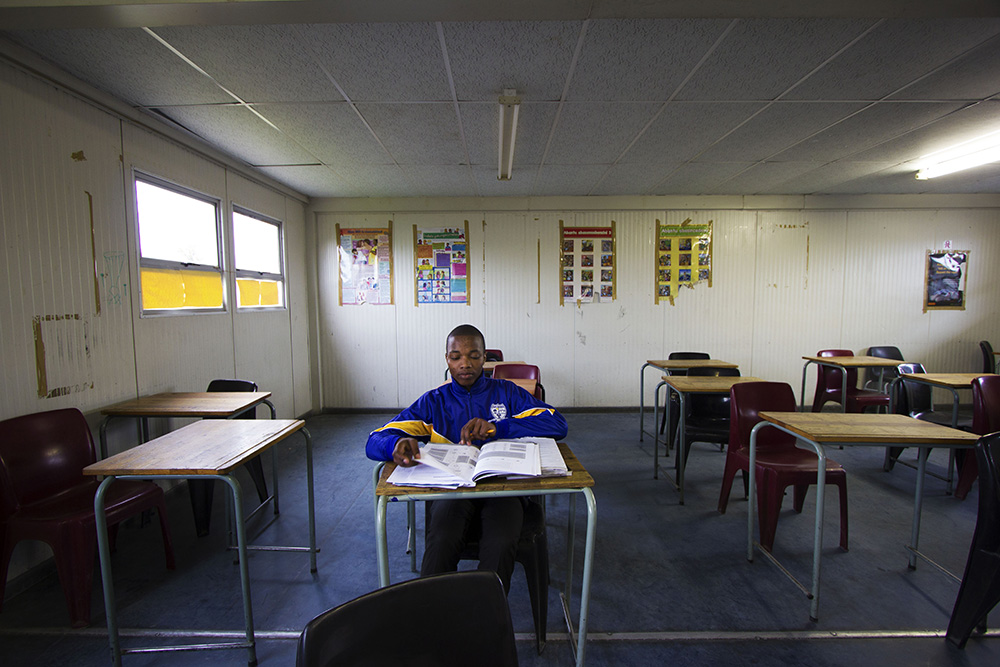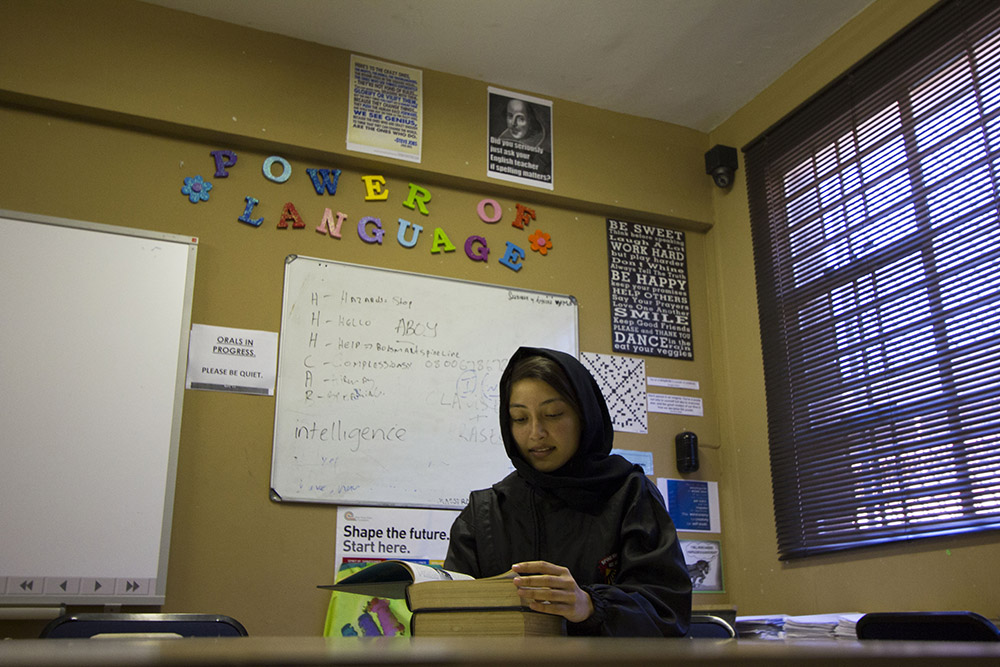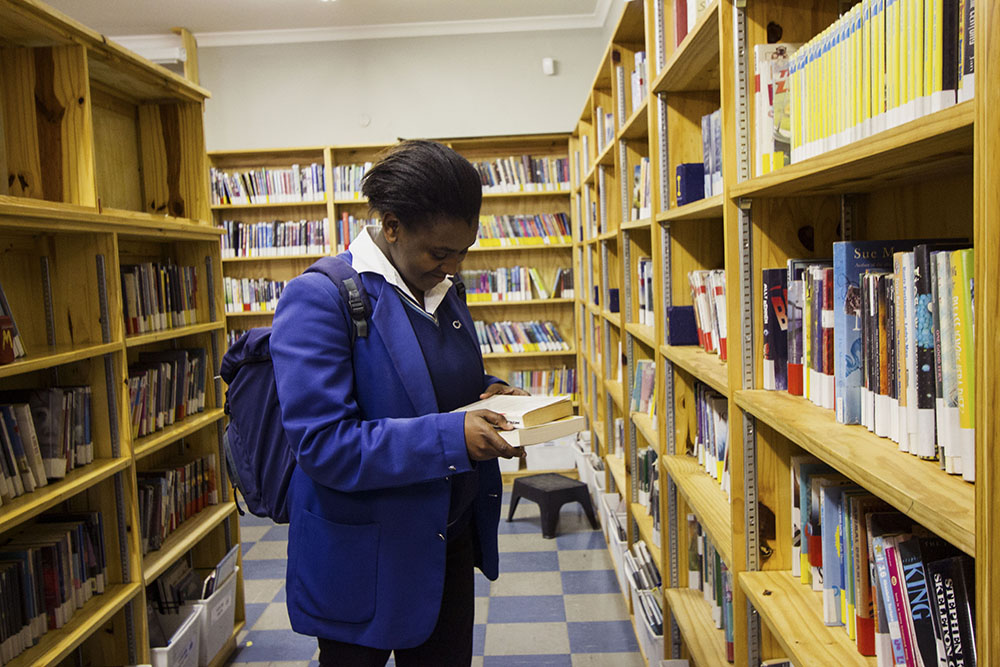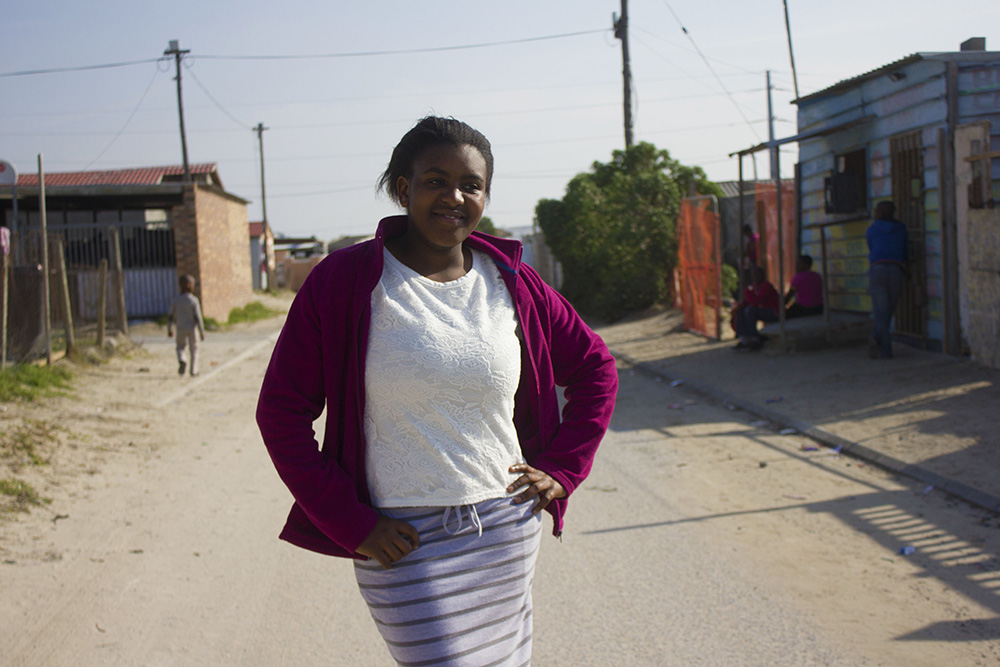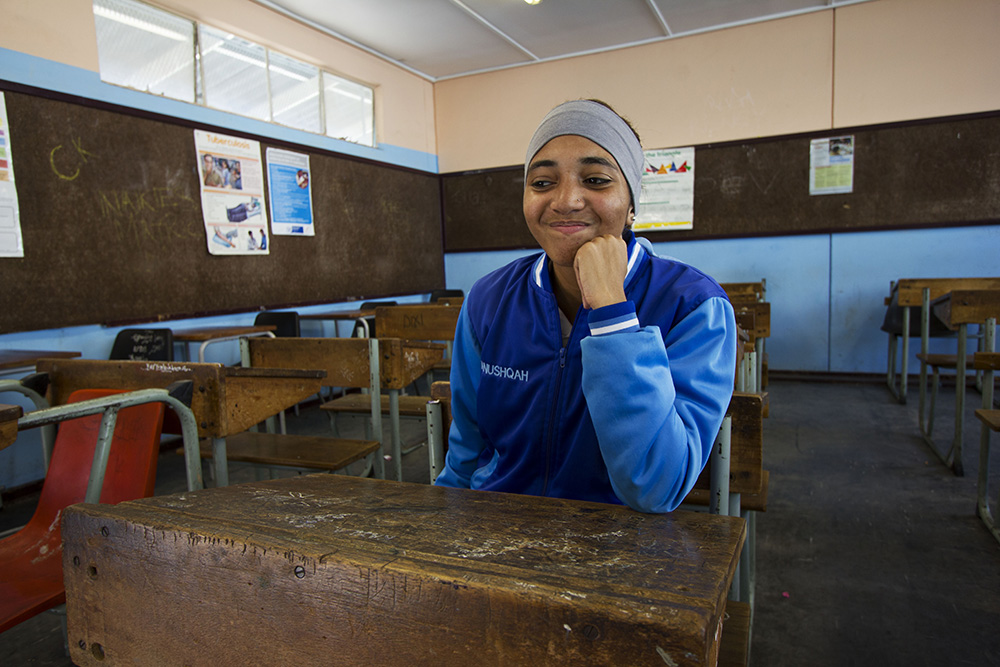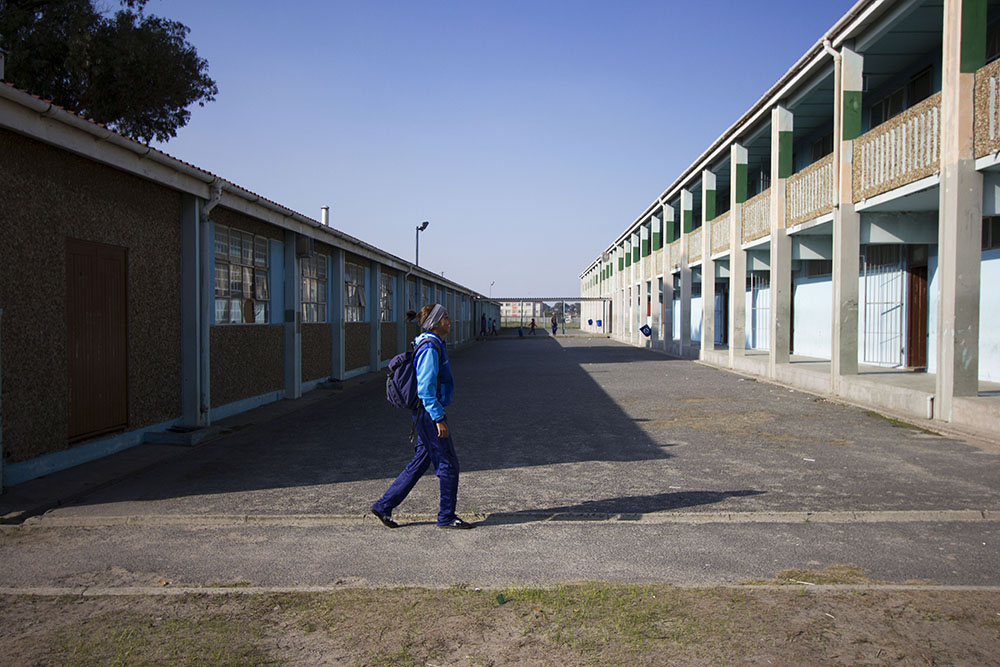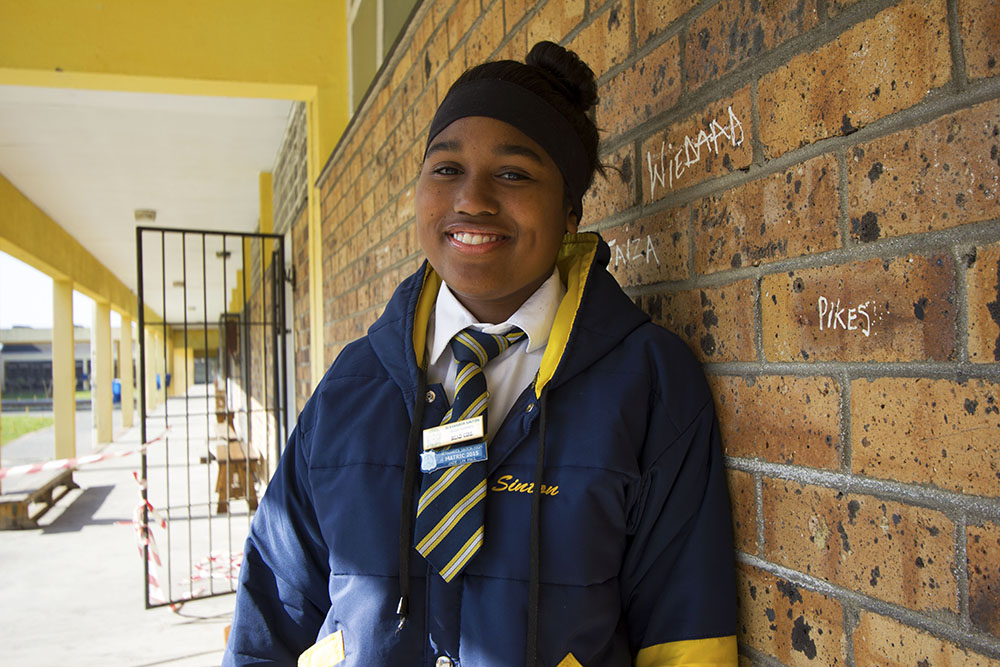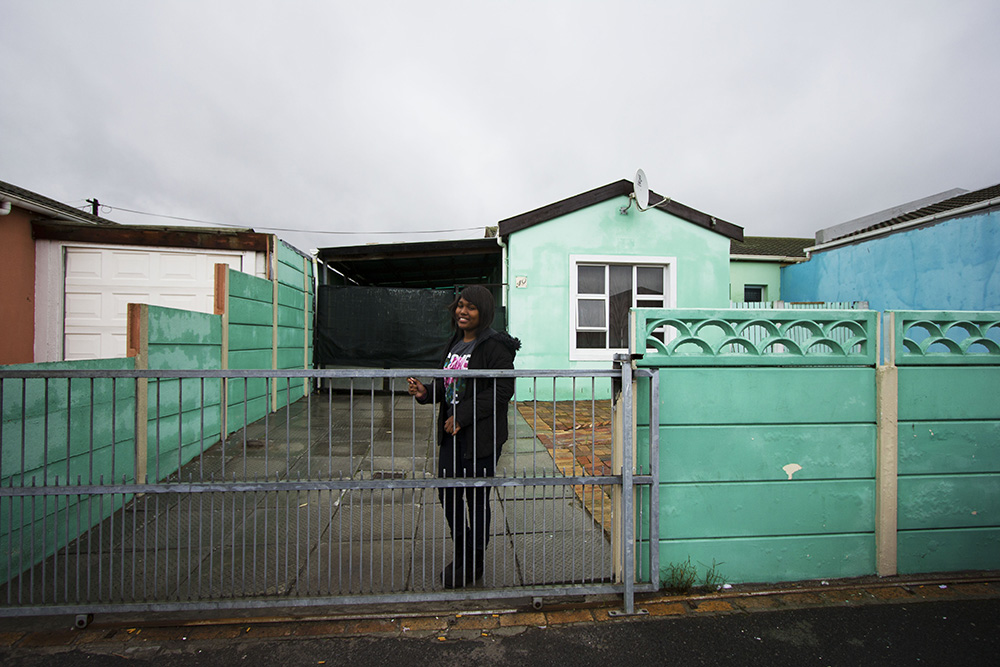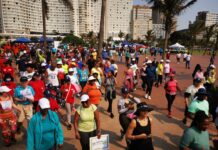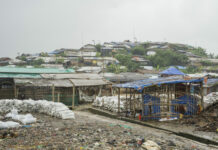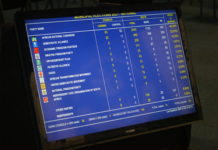June 16 is celebrated as an iconic turning point in South Africa’s history. This year marks nearly 40 years since students in Soweto were gunned down by the apartheid police for protesting against Bantu Education and Afrikaans as the medium of instruction. About 176 students died that day, but has what they fought for become a reality?
The Cape Flats has become synonymous with youth living in violent communities. While the class of ’76 took on a battle against the apartheid government, the class of 2015 has its own challenges to face. RA’EESA PATHER photographed five top matric achievers around the Cape Flats, who are defying the legacy of apartheid to take back their communities – and their futures.
Lutho Valeni, 16, Philippi High School, Philippi
Being at school is not that much different to being at home. The teachers are my mothers and my fathers – the same like the ones I have at home. They care about the learners – they give us that love as parents.
Both my parents are unemployed. I live in the backyard of another home with my sister. It makes me push hard so that I can be able to take my family from the backyard, so that my sister can be the owner of a proper house other than a shack.
Being a student living in a shack, we are not different from any student that’s living in a proper building. It’s just a home, but you have to improve so that you can be able to take your family out of the shack.
I have that understanding that a school and education is the key for life. I see education as a way to get out of the township. I want to leave Philippi, but I want to work here as a doctor when I am able.
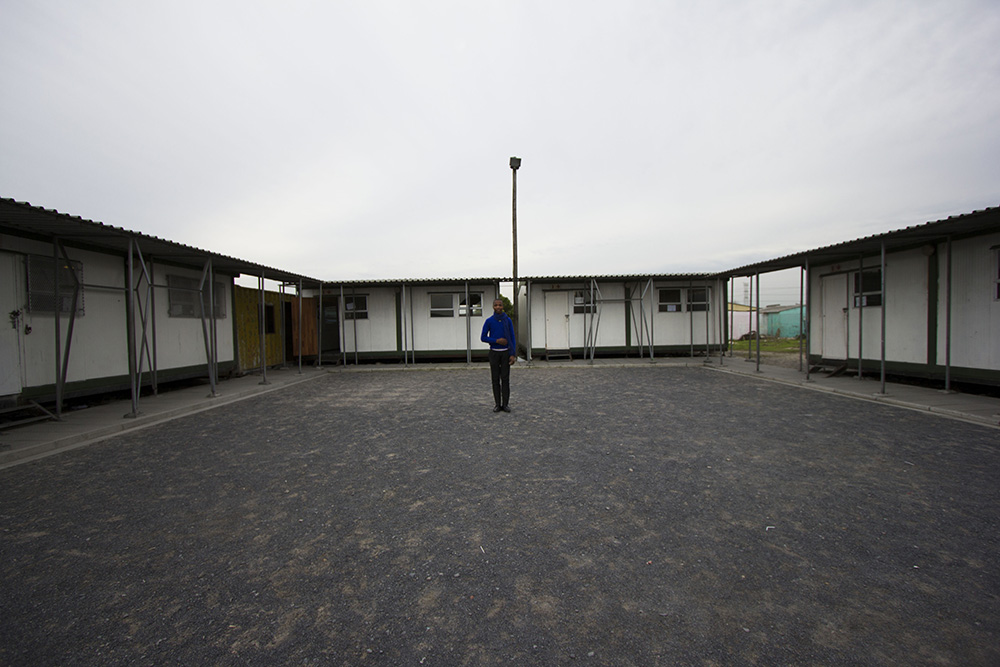
On 6 March we protested for better infrastructure. It reminded me of that day of youth, 16 June, 1976. I thought about those who fought for us for many years, and it made me afraid, because most of the children were injured. In that protest we did nothing, as they did nothing during the protest in 1976, but the police responded with violence.
For us, as students of Philippi High, I can say that the democracy is not fair to us. There’s a school that was renovated last year near Mitchell’s Plain. When I saw it, I thought, “Wow, those buildings are going to be ours.†But after time, I saw that that building is not for us; it’s for a primary school from Mitchell’s Plain.
We were shocked: as Philippi High, we are passing with great marks, and in our district we are ranked second highest; then the government chose to build a good infrastructure for those learners and not us.
Zaidah Hoosain, 17, Spine Road High School, Mitchell’s Plain
English is one of my favourite subjects. I love Shakespeare’s books. Macbeth is my favourite. In the beginning, he’s this hero and then in the end he becomes this person that makes me wonder how I ever looked up to him.
I feel like there’s many people like that in the world. You look at them and when you finally get to know them, you realise that you need a new role model.
He reminds me of my father. My father has this drug addiction since before I was born. My mom and my dad got married when my sister was born, and while she was still young, he left. Afterwards, my mom realised what his problem is. He’ll come home and then he’s okay, but afterwards he’ll be this whole different person.
My mother keeps me strong – she’s such a strong woman. I know I’m hurt by his addiction, and she’s human so she has to be hurt by it. But at the end of every year we have an awards ceremony at school and when she sits in the crowd I can see she’s proud to be my mother.
A while ago, my mom had a crèche and I’d play with the children and tell them I’m the teacher. I knew I had a passion with children. In my area there would be children sick and I always thought the clinic is so far away, and I could help in my community, so I combined my two passions. I want to go into paediatrics in medicine. I know how it is not to have, so if I have just a small bit, then maybe I can share it with my community.
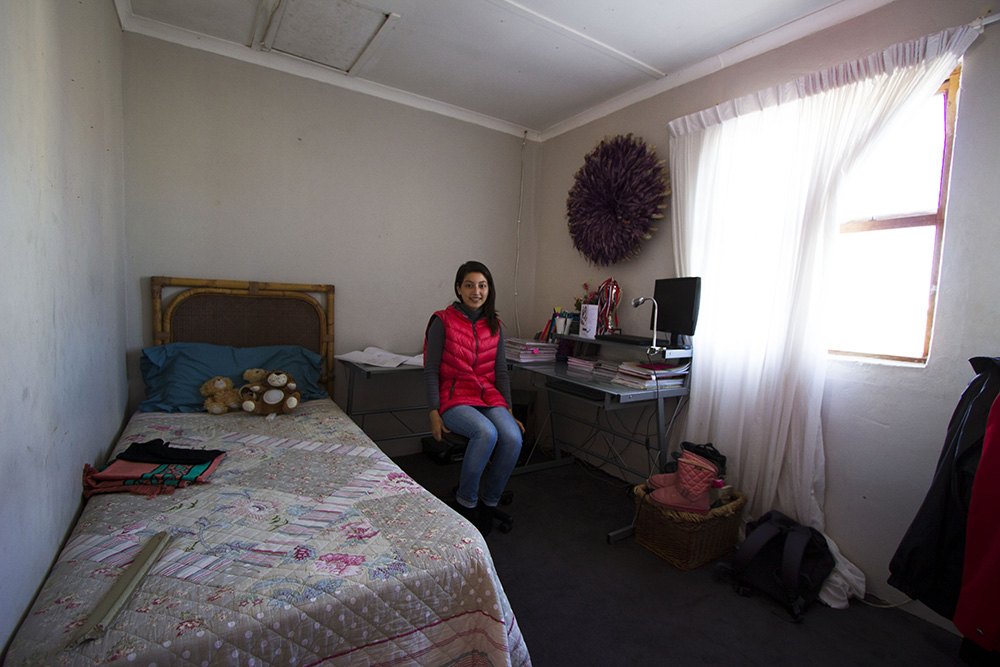
In my room, I have this window, and when all my friends come visit I ask, “Do you want to watch DStv?â€, and I’ll just open my window. You’ll find people fighting and neighbours are playing music for the entire area to hear, and then all of a sudden, you’ll hear gangsters shooting.
I live on a corner, so the one group stands on my corner and the other stands at the other corner and then they fight. I’ve become used to it, so it doesn’t distract me too much when I study, but it motivates me to get out of here and that’s why I work so hard.
Youth Day is really important because it shows youth have the most impact. Nowadays, teenagers are getting pregnant and having children when they are still children themselves. It’s a cycle.
I think everyone now who’s working as hard as I am to become something are also having an impact. But it’s such a small portion of young people who are working towards something. Most of the gangsters in my area are people who are 14 or 15.
Namhla Juqu, 17, Centre of Science and Technology, Khayelitsha
One of my biggest dreams is to initiate a book club for learners in Khayelitsha.
My school has taught me to understand Khayelitsha better, because at school, you start to understand why is it that people resort to violence, and why is it that we see more abuse.
If you look at that, then you start thinking about how you can address those problems. If you want to transform a bad situation you should first transform the minds of the people.
One of the major ways to approach such problems is through reading. It gives you a different perspective to how you see things.
You find most people in Khayelitsha, when they face a problem, they resort to crime. What’s leading these people to end up being criminals? It’s not only the fact they poor: there are a lot of factors that influence the becoming of an individual and as people we need to realise that.
I feel that if we want to improve Khayelitsha, it’s not a matter of getting learners educated, but it’s matter of changing how they think. You need to think beyond what you see.
I learned this way of thinking because of the teachers we have at the Centre for Science and Technology (Cosat). I was one of the learners who was not an active reader, but my Grade 8 English teacher almost forced us to read and it helped me to develop. I went from being a shy child who wouldn’t speak in class to suddenly having much more confidence in myself, and believing in myself that I could be anything that I want.
My dream for the future is to be a chemical engineer. I’ve applied at UCT and Wits and got accepted, so I’m still deciding where I will go. I already have a bursary from the Department of Water Affairs.
You can feel that my family is happy that I’m getting somewhere with my life. I’m the third to go to university in my family.
We come from poor families, so certain things we like to develop us, we can’t attain them at home, and that is why you find the strength to work hard in your education.
I want to improve my situation at home because our parents work, and if their working conditions are very harsh they come home tired. It’s exhausting to their bodies and they don’t have medical aid; they rely on public hospitals, where the services are not good.Â
In trying to raise us, our parents have problems because they have a lot of debt and they are trying to repay it. As a result, they need to continue to work and you can see that their bodies can’t support it.
My mom, 53, is a domestic worker. She gets home after 7pm, and when she gets home she’s tired. She’ll tell you that her back hurts or that her legs are weak, or she’ll say that her whole body’s painful.Â
For me, as a child, that’s hurtful, to think that my parent is becoming older, their bodies are becoming weak, and you don’t know what’s going to happen tomorrow, but you can see each day they’re struggling. It’s not easy, but it propels you in your education to move far because you want to make tomorrow better.Â
We need to find people who are innovative to be problem solvers. Young people today don’t have the curiosity to want to know why things are the way they are. Our youth are more interested in their social environments, so even with June 16, when you look at how people are celebrating, they are wearing a school uniform but you don’t see the understanding of what the significance of the day is from them.
For me, I feel like what’s the point? They fought for our education, but what are we doing to fight against the weak pass rate? Nothing. We admire those people and how they fought for education, but what we’re not actually learning from them.
Anushqah van der Ventel, 17, Manenberg High School, Manenberg
My proudest moment was in Grade 10. I wrote an essay for a SADC writing competition and I came third nationally. I never knew about that writing competition, but my teacher saw faith in me: she believed that I could write the essay. I was really shocked that someone thought so highly of me.
School is a pressure for a lot of children living in Manenberg, because we don’t have the resources to educate ourselves with technology, except cellphones. Gang violence is now at its peak, and it’s hard to study. The gangsters are shooting each other from across the road.
Two nights ago, a bullet went into the wall in my neighbour’s house. When you are studying, you think that what if you know the person that’s been shot or what if it’s one of your family members coming from work?
Our youth in Manenberg just see inside where we live. We think that’s all there is to our country and we don’t see the other possibilities.
If the youth of the past fought for our education, and we are slacking, that’s not good enough. Instead, that’s showing that their fight was actually for nothing because if we’re not doing anything to get a good future then it might as well be the same as it was back then.
We are a contrast to the youth of those days, because we’re not taking control of our lives, instead we are letting our circumstances rule what our lives will become.
I’m scared to walk anywhere alone, but I keep coming to school, because I don’t think I’ll be satisfied if I can’t be something to change everything else. My parents have instilled in me that I can be much more.
Maybe they couldn’t control their lives because they had so many obstacles during apartheid that my mom couldn’t finish matric, but she told me that I’m given the chance to control my life and be something I can be.
She said that she was in the same position as me, because she had to walk through all the fights during apartheid to get to school, but it’s just that at that time it was worse than what it is now. Even though all this violence is happening around me, I know that I should just work hard.
I want to study journalism and politics. I want to do stories on people whose voices have been taken away, people who have been abused and people who have been silenced. I would like to give them their voice back and to allow them to express themselves.
I’d like to encourage the learners here that if you start working hard then you can achieve better dreams and not have to go work in a factory or be a domestic worker.
Those youth fought for their education in 1976, so we should fight to keep ours.
Jade’-lin Paul, 17, Alexander Sinton High School, Heideveld
I like to complete things. I make sure that everything I do is perfect. The other night, I was doing this physics problem, but I didn’t understand it. I decided okay to close my books, but as I was getting ready to sleep, I realised maybe I should try again, and I actually got it right. That gives me the confidence to know I can do something.
I really want to make a difference. That’s basically what just keeps me going. I see there’s so much wrong going on in my community, especially in the day hospital around the corner. People sit for hours to see a doctor. There’s people that’s really sick, and they really need it, so I’m thinking why can’t I be that person to make the lines a little shorter and help people? I want to be doctor because I want to make people’s lives better.
I want to make myself so successful that my parents never have to buy anything for themselves. They did so much for me, so I just want to make their lives easier. My mom takes me wherever I need to go: they’ll always be there – I’ll just say that I need to be somewhere. My parents can’t drive, but they will make sure that I get there.
Two years ago, the doctor told my mom she has to go for an operation for her tendon in her foot, but that means six weeks off school, and she said she can’t afford to do that right now. That’s why I want to work, so that they don’t have to worry about me as well.
In those upper-class areas, they don’t really know what it’s like to live in the ghetto with the gangsters. They not really exposed to that kind of thing, and that’s why it’s an inequality.
There’s not really gangsterism here, but if you go deeper into Heideveld, there’s a lot of gangsterism and shooting. They shoot there by the school where my mom works, and when they shoot the police has to escort them out of the school.
I don’t think that’s fair for primary-school children to have to go to school in that conditions when it’s got nothing to do with them, but they are affected by it.
The education system we have today isn’t really that adequate, but the teachers try to make the best of what’s happening.
At school, we don’t have computers and we don’t have science labs, because it’s technically an arts-focused school, so the department doesn’t really provide those type of things. When my physics sir came to the school, they started improving the labs, but we too many children in a class and that makes it difficult. There are 50 of us in my physics class.
My history teacher told us how driven the children of the past were to make a change, but our generation just comes to school because we have to. Back then, they came because they wanted to make a difference.
The children of today need that type of motivation so they can see school isn’t just about completing matric, but to actually make a difference.
I’m very grateful to those children. The fact that they gave up their lives so that we can make a difference in the future gives me hope. We have a lot of social inequality to fight against, so it gives me belief that if they could fight against political inequality, then we can fight against social inequality.

![YouthDay_RP_5 [slider]](https://www.thedailyvox.co.za/wp-content/uploads/2015/06/YouthDay_RP_5-slider.jpg)
